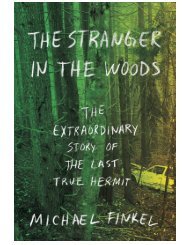You also want an ePaper? Increase the reach of your titles
YUMPU automatically turns print PDFs into web optimized ePapers that Google loves.
The purpose of this book, then, is altogether different from that of the volumes of The History of<br />
Middle-earth from which it is derived. It is emphatically not intended as an adjunct to those books. It<br />
is an attempt to extract one narrative element from a vast work of extraordinary richness and<br />
complexity; but that narrative, the story of Beren and Lúthien, was itself continually evolving, and<br />
developing new associations as it became more embedded in the wider history. The decision of what<br />
to include and what to exclude of that ancient world ‘at large’ could only be a matter of personal and<br />
often questionable judgement: in such an attempt there can be no attainable ‘correct way’. In general,<br />
however, I have erred on the side of clarity, and resisted the urge to explain, for fear of undermining<br />
the primary purpose and method of the book.<br />
In my ninety-third year this is (presumptively) my last book in the long series of editions of my<br />
father’s writings, very largely previously unpublished, and is of a somewhat curious nature. This tale<br />
is chosen in memoriam because of its deeply-rooted presence in his own life, and his intense thought<br />
on the union of Lúthien, whom he called ‘the greatest of the Eldar’, and of Beren the mortal man, of<br />
their fates, and of their second lives.<br />
It goes back a long way in my life, for it is my earliest actual recollection of some element in a<br />
story that was being told to me—not simply a remembered image of the scene of the storytelling. My<br />
father told it to me, or parts of it, speaking it without any writing, in the early 1930s.<br />
The element in the story that I recall, in my mind’s eye, is that of the eyes of the wolves as they<br />
appeared one by one in the darkness of the dungeon of Thû.<br />
In a letter to me on the subject of my mother, written in the year after her death, which was also the<br />
year before his own, he wrote of his overwhelming sense of bereavement, and of his wish to have<br />
Lúthien inscribed beneath her name on the grave. He returned in that letter, as in that cited on p. 29 of<br />
this book, to the origin of the tale of Beren and Lúthien in a small woodland glade filled with hemlock<br />
flowers near Roos in Yorkshire, where she danced; and he said: ‘But the story has gone crooked, and<br />
I am left, and I cannot plead before the inexorable Mandos.’
















